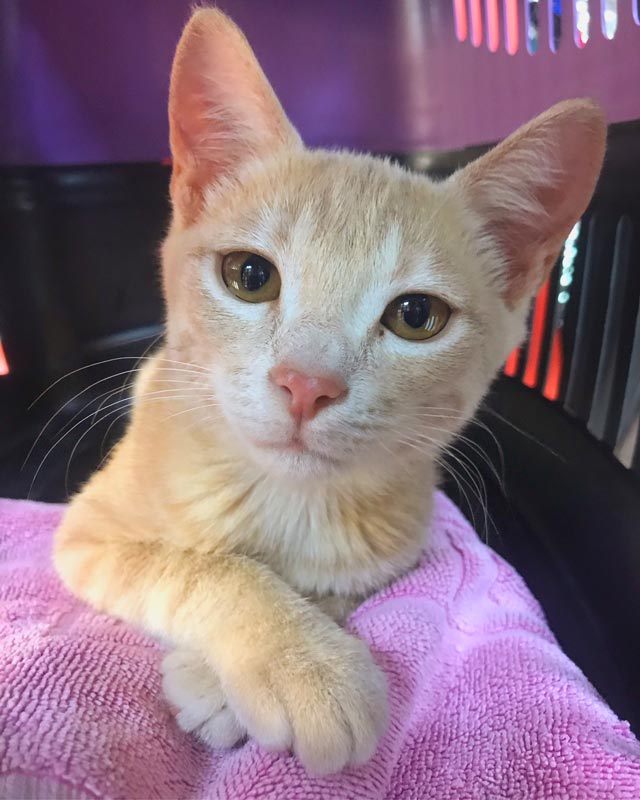Distemper in Cats

Feline distemper is a condition that is caused by a virus in cats. Its scientific name is panleukopenia.
What Is Feline Distemper?
Distemper is a viral infection caused by a parvovirus. Many people are familiar with parvovirus in dogs, and the feline version is similar but even more deadly.
Distemper is extremely contagious between cats and is exceptionally prominent in the environment. It's also quite stable in the environment and is considered to be ubiquitous (present virtually everywhere that isn't disinfected regularly. Even then, canine distemper virus isn't killed by all general disinfectants).
Almost every cat will encounter feline distemper virus at some point in their lives. The virus gets into a cat's body through the nose or mouth.
Signs of Distemper in Cats
Cats with distemper usually develop a fever and enlarged lymph nodes in the throat, and then the virus affects the bone marrow, drastically reducing the cat's white blood cell production.
Next, the intestine is affected, becoming ulcerated, and the cat gets severe diarrhea and sometimes vomiting. From there, the cat gets extremely sick quickly, growing dehydrated and usually developing a secondary bacterial intestinal infection.
Diagnosis of Feline Distemper
Blood work on a cat with distemper virus will show an extremely low white blood cell count.
The SNAP test that many veterinarians use in-house to diagnose canine parvovirus on dogs' fecal samples will usually turn positive for feline distemper as well. However, similarly to parvovirus in dogs, the test will show as positive if the cat was recently vaccinated against distemper.
Treatment of Feline Distemper
Treatment of the condition is supportive. The cat requires hospitalization for fluid therapy, antibiotic treatment, and medications for pain, vomiting, and diarrhea. Basically, the cat's life must be sustained until his own body systems can rally and fight off the infection.
The condition is almost always deadly without treatment, and with aggressive supportive care, the prognosis is still guarded.
Note: Cats may shed virus for a month and a half after recovery from distemper, so they should be kept separate from other cats and their environment regularly disinfected.
Cerebellar Hypoplasia in Cats
If a kitten is infected with distemper while in utero, they may develop cerebellar hypoplasia, which is an underdevelopment of the cerebellum in the brain. Those kittens can have tremors and walk abnormally after birth and throughout their lives.
Vaccination for Feline Distemper
Luckily, there is a very effective vaccination against feline distemper. Kittens should be given at least two doses of that vaccine about three or four weeks apart, with the last treatment done around sixteen weeks of age. Then, the vaccine needs to be boosted every one to three years.
Because of the efficacy of the vaccine, distemper in cats is generally seen mostly in kittens, stray cats, and cats in overcrowded conditions.
You May Also Like These Articles:
Cat Scratch Fever: What It Is and How to Avoid It
FIP: Feline Infectious Peritonitis in Cats
Zoonoses: Things Cats Can Spread to Humans
Notice: Ask-a-Vet is an affiliated service for those who wish to speak with a veterinary professional about their pet's specific condition. Initially, a bot will ask questions to determine the general nature of your concern. Then, you will be transferred to a human. There is a charge for the service if you choose to connect to a veterinarian. Ask-a-Vet is not manned by the staff or owners of CatHealth.com, and the advice given should not delay or replace a visit to your veterinarian.




